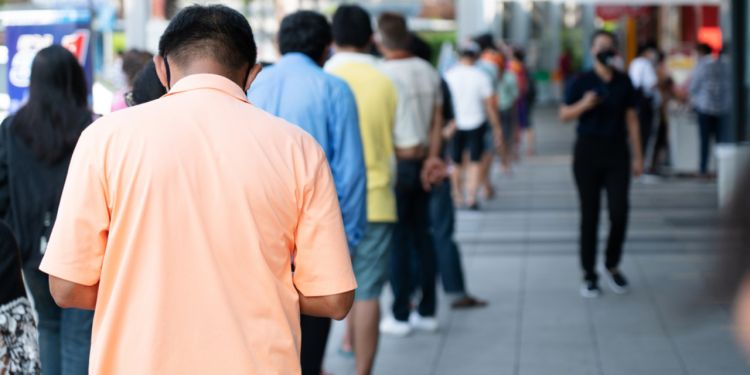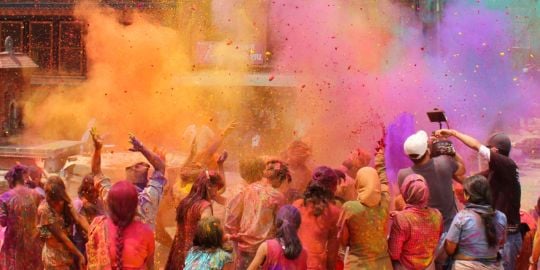Post-COVID-19 changes in India

India implemented strict travel restrictions, taking into account the growing number of COVID-19 cases every day. If you're still looking to move there after the crisis, here is what you should expect regarding entry and visa requirements, work, real estate, lifestyle, etc.
What are the current regulations for entering India?
The Indian government has introduced strict travel restrictions for many nationalities. For example, travellers from South Korea and Italy must have a negative COVID-19 certificate issued by an approved laboratory in their home country. On arrival, all travellers are quarantined for 14 days. COVID-19 screening and temperature checks are also being conducted at all ports of entry. Also, travellers are required to provide a form containing their contact details to health and immigration officers. Note that this form is also required for certain domestic flights. They should also indicate the countries where they travelled before coming to India. Travellers with COVID-19 symptoms, such as fever, will be isolated for further medical tests. Find out more on the Board of Investment website.
Have there been any visa changes recently?
All foreign nationals who are currently in India and who are unable to leave the country are required to renew their visa on the e-FRRO portal. Visa renewal is free of charge during the COVID-19 crisis. However, it is recommended that travellers submit a single application to avoid processing delays. Foreign nationals are advised to avoid going to the FRRO office in person. On the other hand, specific categories of travellers are allowed to enter India, such as business visa holders, health professionals (including researchers, engineers and technicians) provided they have an invitation letter issued by an accredited and recognised healthcare facility, pharmaceutical company or university in India, as well as specialists, engineers and managers travelling on behalf of a foreign company based in India, etc. They are required to apply for a visa from the Indian representations in their home country. Holders of multiple-entry business visas must re-validate their visa, as their previous electronic visas are not valid anymore.
Is it easy to find work in India following the crisis?
After the COVID-19 crisis, finding a job in India as an expat is going to be even harder than it is now. While millions of people have already become jobless since the start of the crisis, more layoffs are expected in the coming months. Tourism and travel, aviation, retail, restaurants, steel, automotive manufacturing, as well as the media and entertainment, are the most affected sectors. In contrast, other sectors, such as finance, ICT and computer education, look stronger. While there are salary cuts in most sectors, many companies are hiring, especially in large cities. According to a recent study by the Center For Monitoring India Economy (CMIE), employment in India rose to 35% in July 2020, although it remains lower than before the crisis.
How has the local healthcare system performed during the crisis?
With poor investment in the health sector, India is highly vulnerable to the coronavirus pandemic. Thousands of new cases of COVID-19 are reported daily, and hospitals are so crowded that it's difficult to get admitted to a designated hospital. For a population of 1.3 billion, the country has only 1.9 million beds, 95,000 intensive care units and 48,000 ventilators, according to a study by the Center for Disease Dynamics, Economics & Policy of India with the collaboration of the University of Princeton. Mumbai, for example, has 9,092 beds in dedicated hospitals, most of which are already occupied, just like intensive care units. The Indian healthcare system is also facing labour shortage since many years -- which probably explains why it cannot meet the growing demand for COVID-19-related healthcare. The current ratio is one doctor for 11,082 patients, according to a report published by the Ministry of Health in October 2019.
Has anything changed regarding universities and schools?
As in most countries, distance learning is the new norm in India. However, in a country with more than 320 million students, less than 25% of the population has access to the internet. In large cities, less than half of the population have access to the internet -- which is compromising for distance education. However, many schools and institutions have taken initiatives to ensure that their students can keep on learning during the lockdown. WhatsApp groups have been created for sharing notes and videos to those who do not have a computer at home. Although schools and universities in India haven't reopened yet, suggestions have been made for a gradual recovery. First, only researchers will be admitted to university campuses after the crisis. The rest of the students will be admitted progressively. With the help of teachers, parents and students, the University Grants Commission made a list of dos and don'ts. Besides, admissions will be taking place online so that students who have internet access don't have to travel to the campus -- which also makes things easier for international students who are looking to study in India. The country is currently home to some 48,000 international students coming mainly from Nepal, Afghanistan, Bangladesh, Sudan, Bhutan, Nigeria and the USA and aims at welcoming at least 200,000 international students annually from next year.
How is the real estate market following the crisis?
The construction industry in India has come to a halt with the COVID-19 crisis. Borders closures make it even more challenging for construction and real estate investments. It's worth noting that panic selling led to a price decline compared to earlier this year. Due to the low demand, owners are selling off their properties at lower prices. The launching of many new projects has also been postponed. For now, it's hard to say whether property prices will rise again in the coming months, taking into account significant price drops between 2018 and 2019, especially in large Indian cities. According to Knight Frank, a 5% price drop is expected in Mumbai by the end of this year. The Indian real estate market currently accounts for 6% of the Indian Gross Domestic Product (GDP) which, in turn, shall drop by 5% this year, according to Goldman Sachs. However, following the drop of the repo rate, interest on loans is currently at its lowest since many years. Now could be the ideal time to buy a property in India as an expat.
Has the cost of living in India changed because of the crisis?
Medication prices have skyrocketed in India due to shortage. Purchasing power is also falling due to salary cuts, especially when it comes to buying foodstuff, including cheese, chicken, fruit and vegetables, etc.
How about lifestyle? Have there been major changes in habits following the sanitary crisis?
The COVID-19 crisis has brought about a lot of changes in Indian lifestyles. With the increasing number of cases and deaths every day, people are adopting new habits regarding personal hygiene. Regular hand washing and sanitising, the wearing of masks and social distancing are highly recommended. The Indian authorities have also launched a vast awareness and prevention campaign. Also, it's now prohibited to spit in public! Anyone caught in the action is liable to a fine. As mentioned above, distance learning is the new norm in India, and so is remote working. Employees, especially in the ICT sector, are also encouraged to work from home to reduce the risk of contamination. People are going out less and spend more time online, on social media, YouTube and Netflix.









